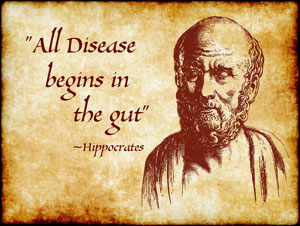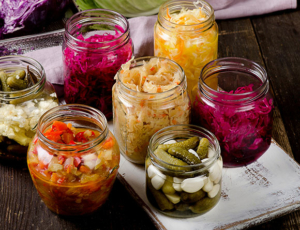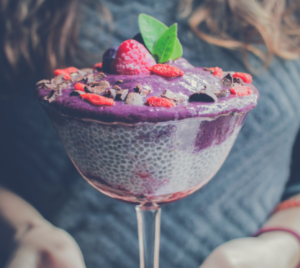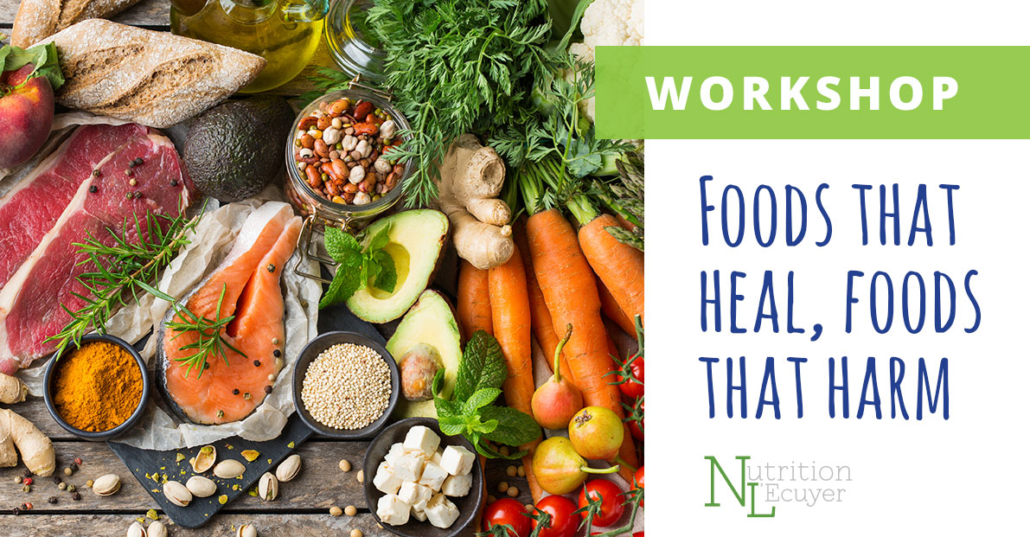To say that we are what we eat isn’t completely accurate; we’re actually what we manage to breakdown, digest and assimilate.
Weak digestion is a very common problem. Some of the most obvious symptoms are heartburn, indigestion, bloating, cramping, gassiness, constipation and diarrhea.

Other issues that can be linked to poor digestion are food sensitivities and allergies, chronic fatigue, weight issues, skin issues such as dry skin, acne and rosacea, brittle nails, pernicious anemia, osteoporosis, many autoimmune conditions have been linked to the gut and of course conditions like irritable bowel syndrome are directly linked to poor digestion.
If you would like to learn practical tips and tools that you will be able to start implementing in your life right away healthier food, please join me for an information-packed workshop.
Here are my top 4 tips to improve digestion:
1-Don’t eat when stressed or anxious
Our fast-paced and stressed-out lives are not conducive to healthy digestion.
Our bodies have evolved to be very efficient. For our early ancestors, when the stress hormones got turned on, that was a signal to prepare to fight or to run for their lives.
When stress is high, our bodies are just not capable of efficient digestion.
Be mindful of how you are feeling around meal time and avoid eating if you are feeling especially anxious or stressed. Hydrochloric acid or HCl is an essential part of healthy digestion as we will discuss later. Stress turns off the natural secretion of HCl in the stomach.
The old fashioned tradition of giving thanks or saying grace before a meal is actually a huge plus for digestion since it forces us to slow down, allowing the body to prepare to receive nourishment. The anticipation of the delicious flavours, the smell and the sight of food all prime the system to begin digestion.
2- Chew, chew, chew
The importance of careful chewing can’t be emphasized enough. Digestion begins in the mouth with the mechanical breakdown of food and the mixing of food particles with enzyme-rich saliva that begins the chemical breakdown of certain foods. When we gobble down our food, we skip this step putting a huge strain on the rest of the digestive process.
Get in the habit of putting down your utensils between bites and don’t fill your fork until the bite in your mouth is chewed thoroughly and swallowed. Many clients have noticed that simply slowing down and being a little more mindful at mealtimes has made a huge difference with digestive issues.
3- Incorporate fermented foods
Fermentation has been used for thousands of years. Every culture has a tradition of fermented food. Perhaps the most popular and widely known fermented food is yoghurt.
 Germans have traditionally fermented cabbage to make sauerkraut, Koreans also have a delicious version of fermented cabbage and radish called kimchi, the Jewish tradition is known for naturally fermented pickles, eastern European countries ferment milk to make kefir, the Japanese ferment grains or soybeans to make miso and China ferments tea to make kombucha.
Germans have traditionally fermented cabbage to make sauerkraut, Koreans also have a delicious version of fermented cabbage and radish called kimchi, the Jewish tradition is known for naturally fermented pickles, eastern European countries ferment milk to make kefir, the Japanese ferment grains or soybeans to make miso and China ferments tea to make kombucha.
Fermenting food is a great way to preserve food for later use but the fermentation process provides many other health benefits. Fermenting foods actually boosts the food’s enzyme and nutrient content making foods more bioavailable and it provides beneficial bacteria that are indispensable for digestion. Digestion is a highly enzyme-dependant process making fermented foods superstars for digestive health.
Eating a little fermented food with each meal is a tasty and easy way to support digestion and provide the body with beneficial bacteria. Beware of pasteurized products or products that skip the fermentation step and simply add vinegar. Here are some of my favourite brands:

Kefir provides about 30 strains of beneficial bacteria to support digestion compared to yoghurt that provides about two or three strains.
Kefir can be found in any grocery store, I suggest buying plain unsweetened kefir and sweetening it yourself with good quality sweeteners like maple syrup or raw honey. Raw honey is also a great source of natural enzymes to support digestion.
Here is a delicious recipe you can try with kefir.
4-Increase stomach acid.
Our stomachs are designed to be very acidic. Hydrochloric acid (or HCl) is secreted by the cells that line our stomach and provide acidity that is crucial for several reasons; it is necessary for digesting the protein we eat by activating key enzymes, it acts as a natural antiseptic by inhibiting pathogens that hitch a ride into our systems through the food we eat, it is necessary for mineral absorption, and finally it determines the speed at which our stomach empties.
When we don’t produce enough hydrochloric acid, the food we eat sits around in the stomach longer than it should which can lead to putrefaction and fermentation in the stomach (think of hamburger meat left out in damp 37 degree Celsius weather) contributing to a lot of discomfort, gas and bloating. In an attempt to process and digest the food, the stomach continues to churn and mix its contents. Occasionally, the contents will back up into the esophagus creating a burning sensation commonly known as heartburn, or acid reflux.
The conventional mindset is to suppress stomach acid when that burning sensation arises. However, it’s important to note that if there was sufficient acid available in the stomach to efficiently deal with the ingested food in a timely manner, then there wouldn’t be any burning or reflux in the first place.
By suppressing or neutralizing stomach acid with antacids, we are in effect further impairing digestion that was likely weak in the first place.
If you have ever taken antacids, or suffer with GERD, heartburn or acid reflux, I highly suggest you read the following article.
In his book Why stomach acid is good for you, Dr Jonathan Wright estimates that about 90% of American’s don’t produce enough stomach acid.
Here are some reasons why low stomach acid is so common:
Stress: stress interferes with the secretion of HCl.
Age: many experts believe that HCl secretion declines as we age which explains why overindulging and overeating don’t go over quite as well as we get older.
Processed and refined foods: our standard North American diet (SAD) that is to say, highly refined and processed foods, impairs the natural secretion of stomach acid and robs the system of necessary nutrients that are needed for the digestive process.
Alcohol: too much alcohol can interfere with stomach acid as well as the use of certain over the counter and prescribed medication.
Here are some things you can do to boost stomach acid naturally:
Raw apple cider vinegar before meals. Raw apple cider vinegar is a fermented food that is full of beneficial enzymes and beneficial bacteria. Apple cider vinegar will also help correct the pH of the stomach. Take 1 tablespoon in a little warm water before meals.
Digestive bitters have been used for thousands of years and are a natural way to support digestion.
Digestive enzymes and HCl with pepsin. Most folks respond incredibly well to the lifestyle and diet changes that I’ve listed above and don’t require additional support. However, occasionally digestive enzymes or supplemental HCl can be appropriate. Always consult with a health professional before taking supplements.
A final word on overweight and digestion:
Poor digestion is often a contributing factor to weight issues. If the food you are eating isn’t efficiently being broken down, metabolized and absorbed, the system will continue to signal hunger in an attempt to nourish itself. This applies especially if the foods eaten are highly processed and enzyme depleted. Switching to more natural and nutrient-dense foods, while supporting digestion and elimination, always results in some pretty noticeable changes.
If you would like to learn more tips to make healthier food choices, please join me for an information-packed workshop.




 hen you ask your body to release fat, it automatically implies that you will be releasing toxins into the system. Your body will never release these harmful and reactive compounds into the system and into the circulation if you are not giving your body the means to eliminate them through the bowels, urine or sweat. Metabolism will slow down or even come to a screeching halt if it has to, rather than expose the tissues to harmful toxins.
hen you ask your body to release fat, it automatically implies that you will be releasing toxins into the system. Your body will never release these harmful and reactive compounds into the system and into the circulation if you are not giving your body the means to eliminate them through the bowels, urine or sweat. Metabolism will slow down or even come to a screeching halt if it has to, rather than expose the tissues to harmful toxins.